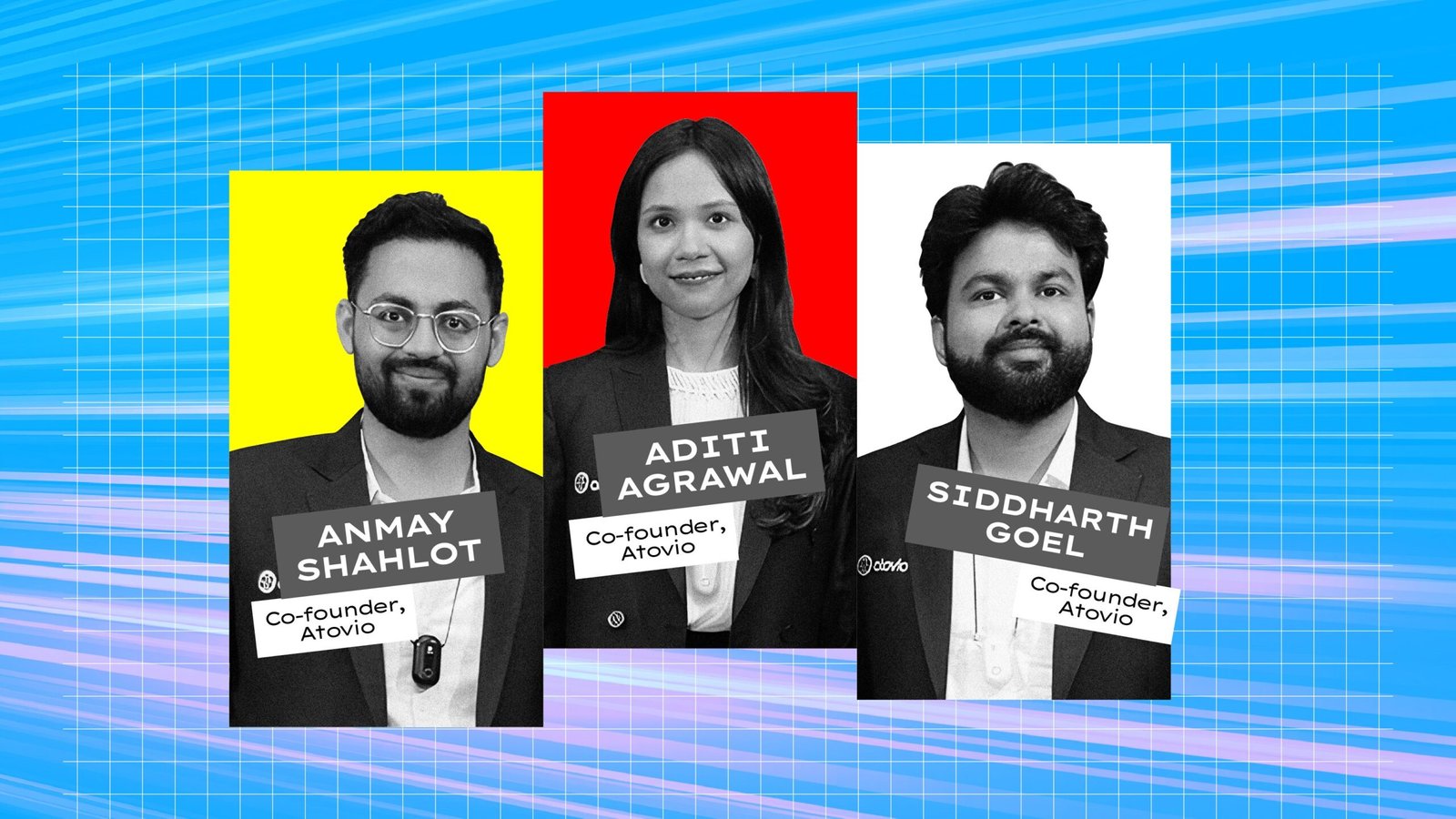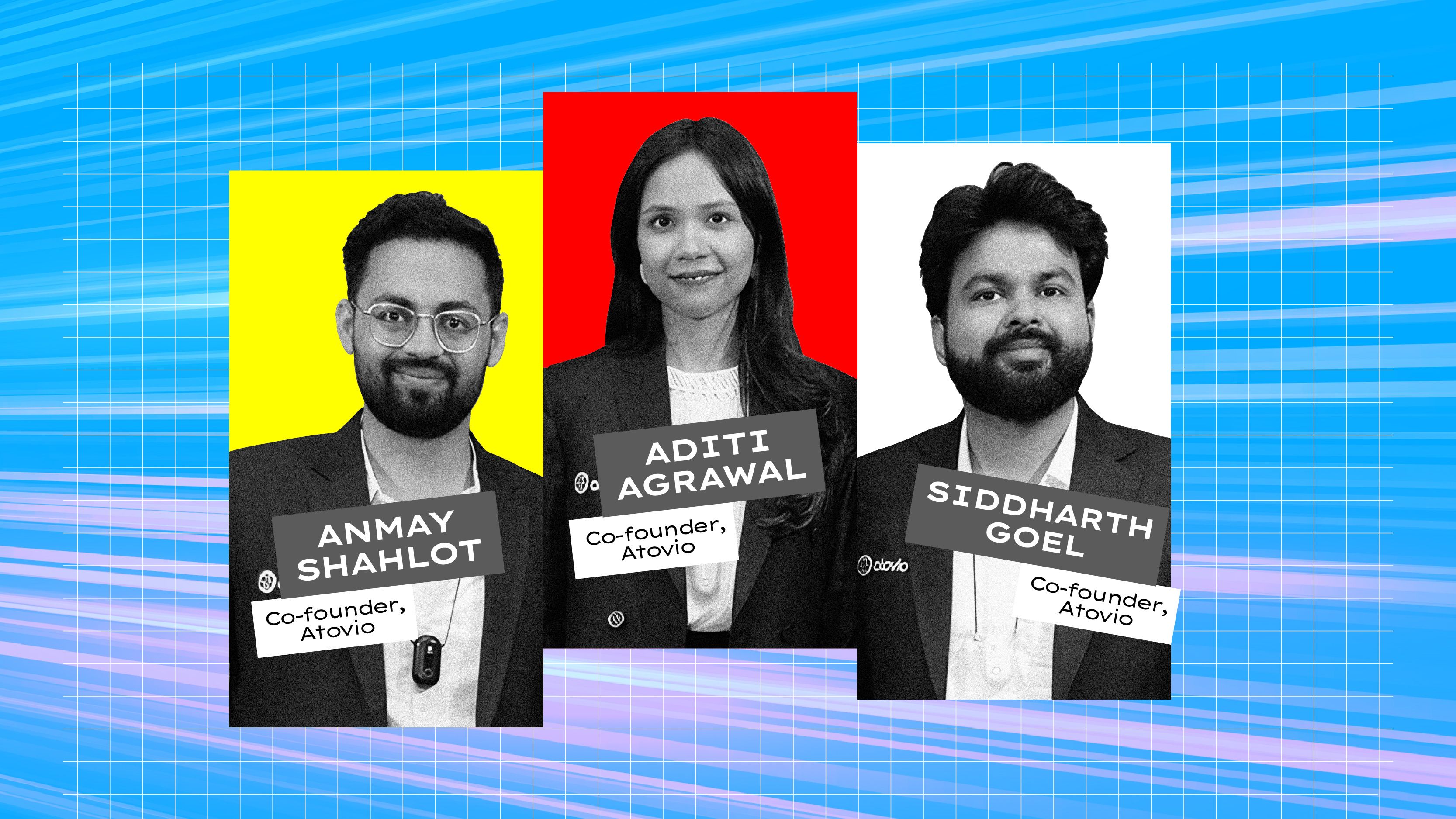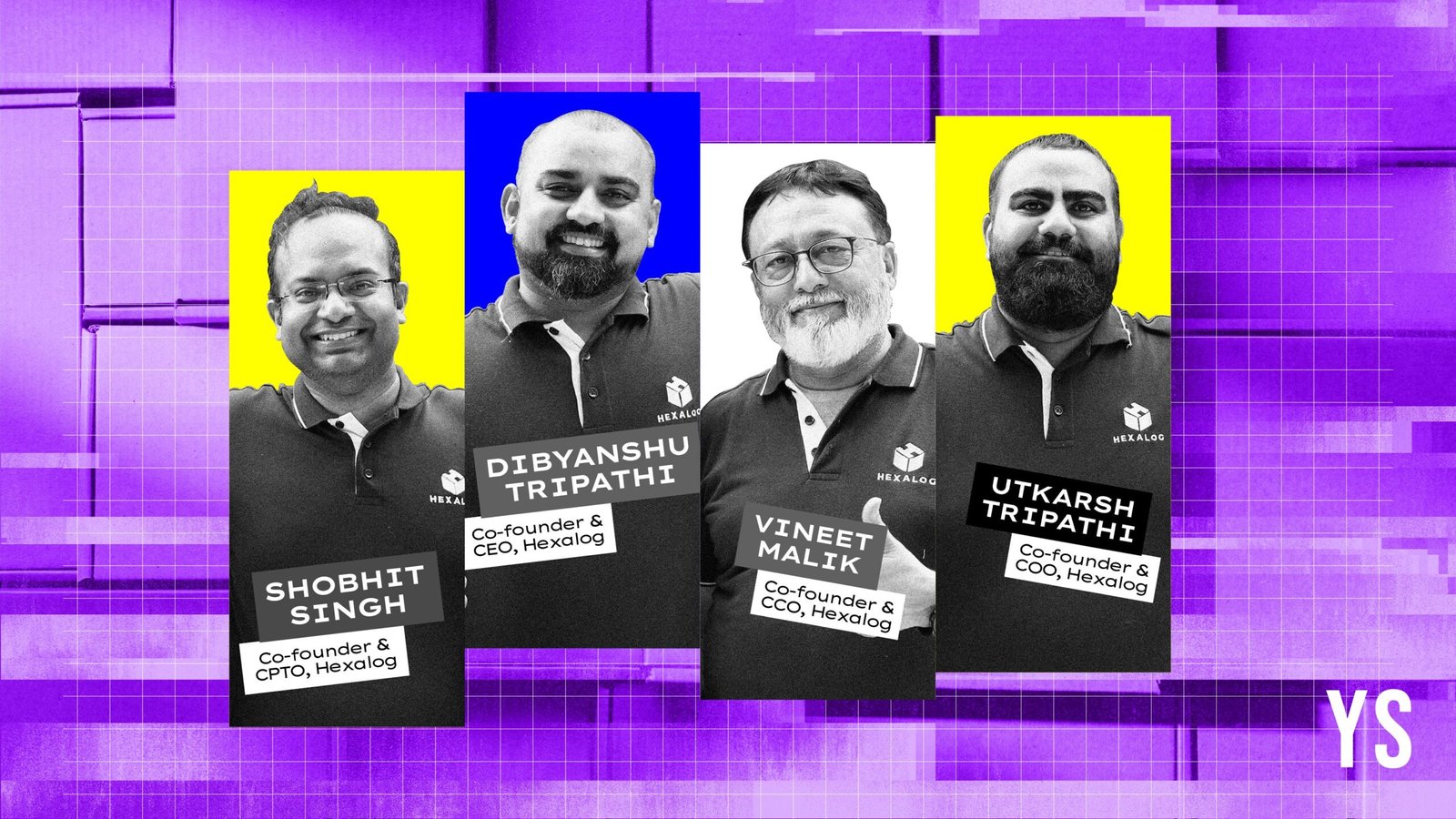Personalised clean air: How Atovio is building India’s first wearable air purifier brand


Global players like Dyson and LG have already launched wearable air purifiers to solve this problem, but affordable, India-first alternatives have been missing so far. Enter Atovio, a Gurugram-based healthtech startup that aims to bridge this gap by making clean air portable and accessible.
Founded in late 2024, Atovio is the brainchild of Anmay Shahlot, an MBA graduate from IIM Indore; Siddharth Goel, an electronics engineer from IIT Kanpur; and Aditi Agrawal, a seasoned entrepreneur who previously built a D2C kids’ safety products brand called Kid Station.
The company’s flagship device, the Atovio Pebble, is a wearable air purifier to hang around the neck. Portable and lightweight, it runs on a rechargeable battery and creates a clean-air zone around the user’s breathing space, filtering pollutants such as PM2.5 and PM10.
The Pebble was first tested at IIT Kanpur and designed keeping India’s severe pollution levels in mind. “Our product has a turbo mode for days when the AQI is above 200. That’s built specifically for India, because very few countries face air quality levels that high,” Shahlot tells YourStory.
Distribution and growth
Atovio follows a direct-to-consumer (D2C) model, selling through its own website and major ecommerce platforms including Amazon, Flipkart, CRED, Blinkit, and JioMart. The devices are also available in select convenience stores catering to international communities in Delhi-NCR, as well as across 20 airports, including Mumbai, Bengaluru, and Lucknow.
Atovio is bootstrapped, with initial funding through small grants, including Rs 25 lakh from the Startup India Seed Fund. The team of 50 employees spans manufacturing, tech, and business functions. The startup manufactures its products entirely in-house, with headquarters in Gurugram and a dedicated facility in Hisar, Haryana.
.thumbnailWrapper{
width:6.62rem !important;
}
.alsoReadTitleImage{
min-width: 81px !important;
min-height: 81px !important;
}
.alsoReadMainTitleText{
font-size: 14px !important;
line-height: 20px !important;
}
.alsoReadHeadText{
font-size: 24px !important;
line-height: 20px !important;
}
}

Building in India, for India
Since its launch, Atovio has sold nearly 8,000 units of the Pebble. Most of the sales come from Delhi and Mumbai, which together account for about 75%. Bengaluru is also becoming a strong market, according to Shahlot. So far, about 7-8% of the startup’s customers are repeat customers.
The company’s target customers include health-conscious consumers, parents, and those with respiratory issues such as asthma or bronchitis.
Shahlot sees the US-based AirTamer as their main competitor. The brand that sells wearable purifiers in the Rs 14,000–24,000 range. In comparison, Atovio’s Pebble is priced affordably at Rs 3,200–3,500.
While cheaper Chinese options are also available, the company is also cautious about safety. “Some ionisers produce ozone, which can be harmful. Our products release 0% ozone and are tested and certified,” he adds.
Globally, the air purifier market is led by multinational giants like Dyson, Xiaomi, Philips, Honeywell, and Panasonic. Yet none of them is India-first or focused only on air quality. With 83 of the world’s 100 most polluted cities located in India, Atovio believes it is uniquely placed to tackle a local problem with homegrown solutions.
For the founders, the challenge was building the right infrastructure. “Electronics manufacturing in India is very hard,” Shahlot says. “Most of the ecosystem is still dependent on China. But we wanted to manufacture everything in-house, from coding and PCB design to injection moulding.”
Atovio’s Hisar facility is equipped with SMT pick-and-place machines and moulding equipment, making it one of the few startups in India to develop both the hardware and software for air purifiers.
Market and product roadmap
The company sees itself as more than just a product maker. Alongside its devices, Atovio is working on Beyond AQI, a website-based awareness platform set to launch in October. Its goal is to simplify air pollution for ordinary citizens.
“Most people think stubble burning or firecrackers are the biggest culprits, but they account for only a small part of the problem. Vehicular emissions, construction dust, and garbage burning are far more significant,” Shahlot says. The platform, built with a youth-first approach, will share real-time local AQI data using Google’s API and create easy-to-understand content on Instagram and YouTube.
The startup is also expanding its product line. Two new wearable devices are on the way—Atovio Pop, a sleeker, Gen-Z-friendly purifier with a magnetic attachment, and Atovio Nino, designed for children aged five to twelve. Both are planned for launch by October 2025 in the Rs 4,000 – Rs 4,500 range.
An N99 mask with replaceable filters is also in development, along with car and room purifiers that will be released over the next year. “Our long-term vision is to become India’s first dedicated air purification company,” Shahlot says.
.thumbnailWrapper{
width:6.62rem !important;
}
.alsoReadTitleImage{
min-width: 81px !important;
min-height: 81px !important;
}
.alsoReadMainTitleText{
font-size: 14px !important;
line-height: 20px !important;
}
.alsoReadHeadText{
font-size: 24px !important;
line-height: 20px !important;
}
}

The bigger bet
For Atovio, the challenge is not only about building devices but also about changing attitudes. “People laugh about a 200 AQI day because they’ve seen 800. But 200 is already hazardous. The normal should be below 50,” Shahlot says. This casual attitude makes adoption harder, but also opens the potential to address a largely untapped market that could open up as awareness improves.
The nine-month-old startup is already gearing up for its first full pollution season this winter. “We expect October 2025 to March 2026 to be our defining months,” Shahlot says. “We are aiming to sell around 50,000 units in the coming months,” he adds.
The wearable air purifier market is growing quickly. According to the IMARC report, India’s overall air purifier market is also expanding, from $507 million in 2024 to $1.8 billion by 2033.
“Our five-year goal is clear,” Shahlot says. “We want to be India’s number one air purifier company. We don’t want to just import or white-label foreign solutions. This is an Indian problem. Indians must solve it.”
Discover more from News Hub
Subscribe to get the latest posts sent to your email.







